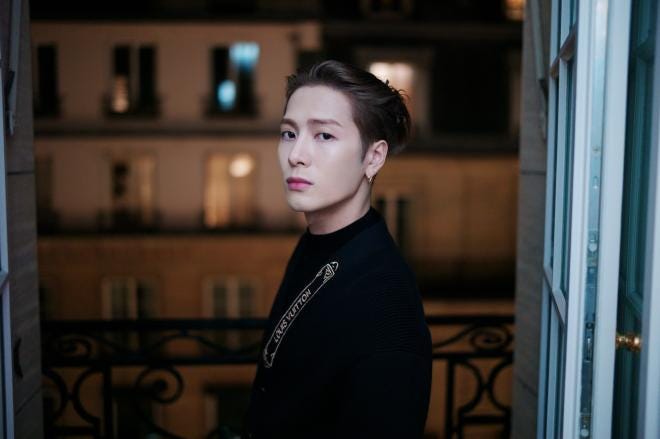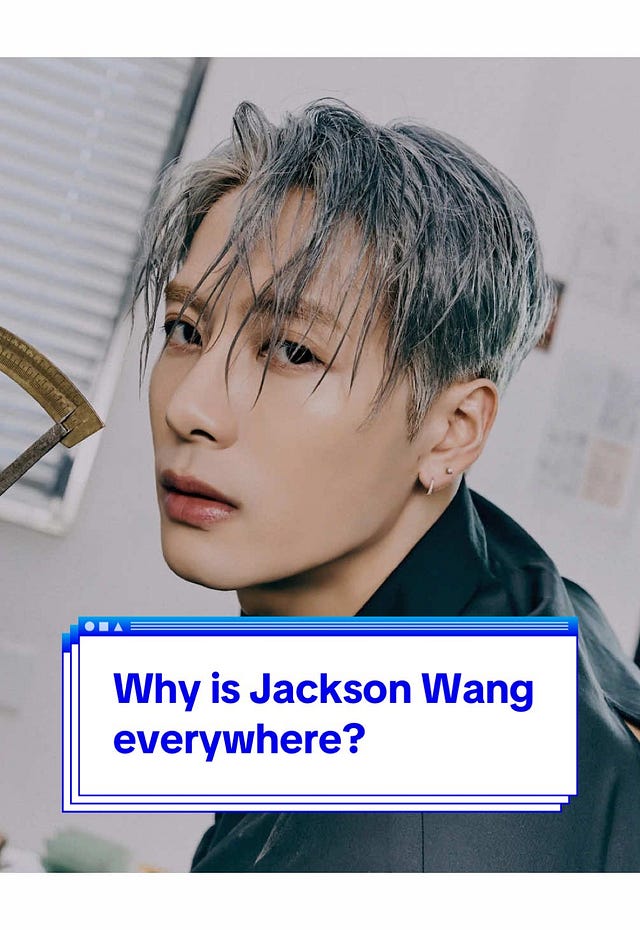Is Jackson Wang really everywhere?
Or is it good marketing?
A common question I hear in K-pop spaces is “Why is Jackson Wang everywhere?”
If you’ve scrolled the internet recently, you’ve likely seen just how busy the Chinese pop singer has been. In June, he travelled to Mumbai on a media tour, making appearances on talk shows, speaking with multiple journalists and even enjoying traditions like cricket and Indian snacks and drinks like khakra and chaas.
Shortly after, he flew to Paris for Fashion Week, then Seoul to prepare for the release of his third studio album MAGICMAN 2. When his album finally released on July 18, Wang appeared on terrestrial radio shows and podcasts, in print interviews and in influencer videos. Then earlier this month at KCON, Wang made an appearance by performing music from his new album. Throughout, he spoke to more journalists and even participated in social media trends.
When it was my time to speak with Wang during his busy promotional tour in early July, I reached him while he was in Seoul, prepping the final touches of MAGICMAN 2. During our zoom call for GRAMMY.com, I asked him why he appears to be everywhere all at once. Here’s how he answered:
“A lot of people on the internet say, 'Hey, why is bro everywhere? I really need to be everywhere because I don't have a label. I don't have a company full of people helping me market stuff. I'm trying my best to get my music out there.”
That self-awareness is what has made Wang feel relatable to his fans, ever since he debuted at age 19 with the K-pop group GOT7. As a self-described extrovert, Wang has often made a point of getting to know the people around him, cracking jokes and even being vulnerable in interviews.
But to truly understand Wang’s hustler mentality is to remember it’s been built within him since a very young age.
Before getting scouted as a trainee by JYP Entertainment, Wang was a professional fencer competing for Hong Kong. After leaving sports, he was thrust into the busy K-pop system of rehearsals, recording and tours. That level of discipline needed for athletics and art is something Wang also referred to during our interview. He described himself as “being very comfortable in a cycle of just executing what I'm told.”
It makes sense that Wang would work hard for what he’s created. After all, discipline is deeply rooted in Chinese culture, thanks to the longstanding values of Confucianism. As someone with similar roots, I could relate to everything Wang said without him having to explain it.
The truth is, it isn’t easy being an artist today—let alone an independent one, and Wang recognizes it as his own boss. In the age of social media and streaming platforms, successful songs today often revolve around some sort of TikTok trend, dance challenge or a viral moment.
But it’s sad to say not a lot of artists are willing to go out of their way to promote in the same ways Wang has.
As a journalist, I’ve often been approached by publicists to pitch and interview artists, but only if it’s for big-name publications like Rolling Stone, GRAMMY, Teen Vogue, Harper’s Bazaar, etc. I write a lot for Asian American and Asian Canadian specific publications, and oftentimes these are not deemed good enough even though that’s where many of these artists’ fanbases lie.
This kind of exclusive access only works if you’re an A-list star like BTS or Taylor Swift. One could even make the same case for Wang, who boasts more than 30 million Instagram followers. But far too many times, artists overestimate just how popular they are. And as a result of a lack of promotions, never end up reaching their potential.
I’ve seen this commonly said of singers like Normani, who had lots of momentum during her solo debut. In the years since, she’s often faced criticism from many of her fans for her team’s lack of effort to promote her. Keshi, another artist whose music I adore, also had this issue affect him during his recent Requiem tour. Following the success of his debut album GABRIEL, he went silent for about two years making his sophomore album. Of course, in between that, he experienced the death of a close friend. But when it was time to promote his latest album, he announced an arena tour with little to no promotion beforehand. As a result, ticket sales were slow.
At the end of the day, I don’t fault publicists for their work because I know it often comes down to management and the artists who call the final shots when it comes to promotions. But jumping back to my earlier points about Wang, I just don’t see a lot of artists—especially in K-pop and Asian pop spaces—promoting this way anymore!
And to little surprise, that media exposure is doing its job.
I recently posted a TikTok video about Wang’s promotions and had fans chime in about his marketing strategies. Some noted Wang’s ability to speak multiple languages (English, Korean, Mandarin, Cantonese, Shanghainese) as a reason for his global success. Others noted how his media appearances are working, leading them to watch three music videos having not listened to Wang’s music before.
One could make the argument that Wang is overexposing himself to the media. But at a time when it’s becoming harder and harder for artists to find relevancy in music, Wang is doing everything he can to get his name out there. For someone as famous as he already is (all my Chinese relatives know him!), I found it very commendable.
More artists should take notes from the Jackson Wang school of marketing.
Get in touch by emailing bunnipopnewsletter@gmail.com. Or, follow me on Instagram, TikTok and Threads.




